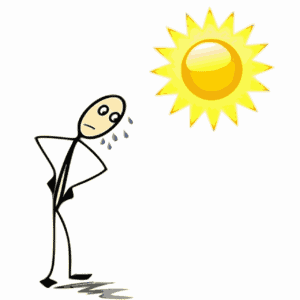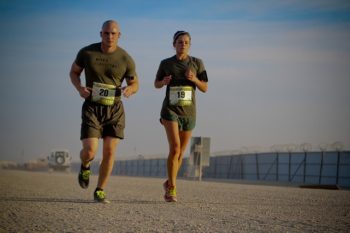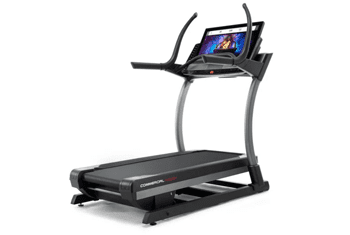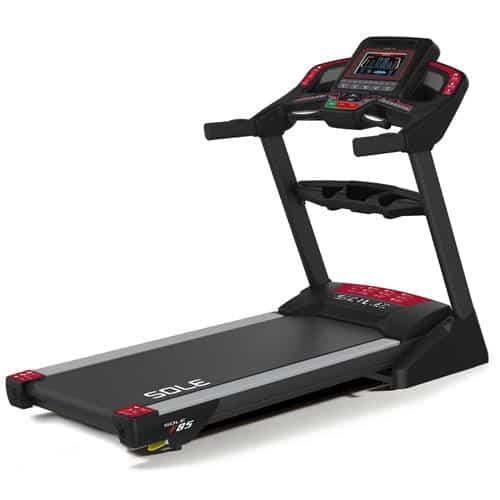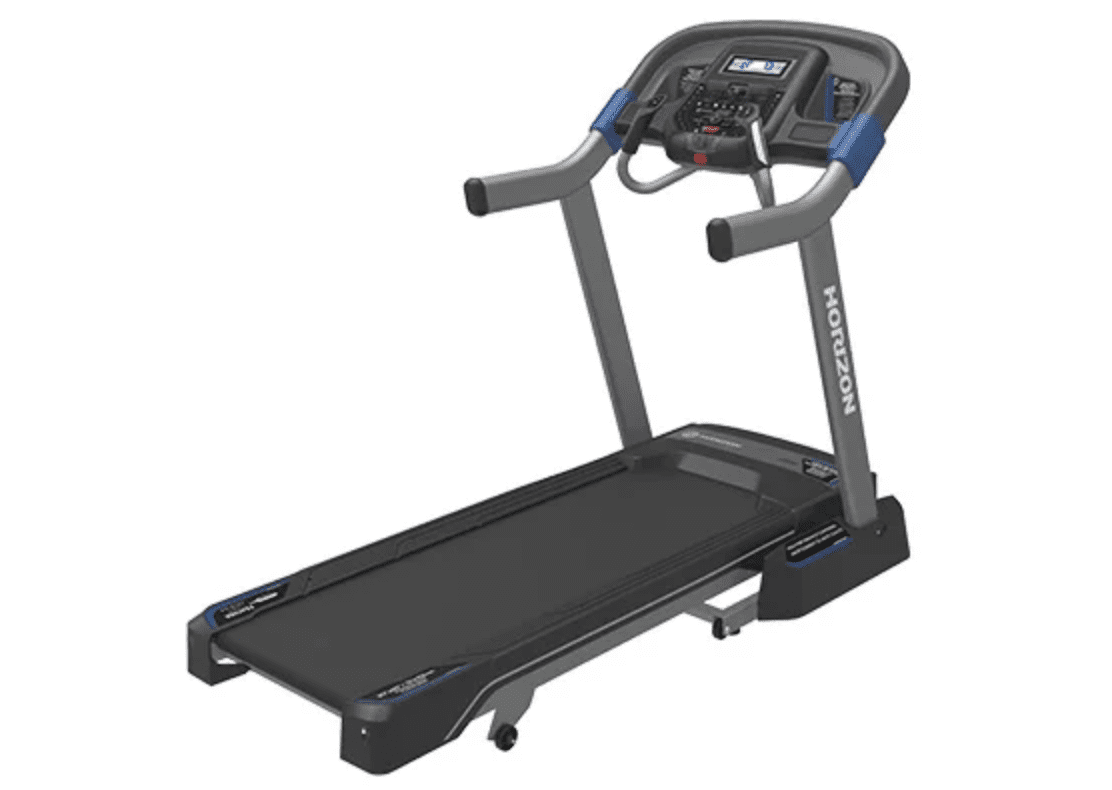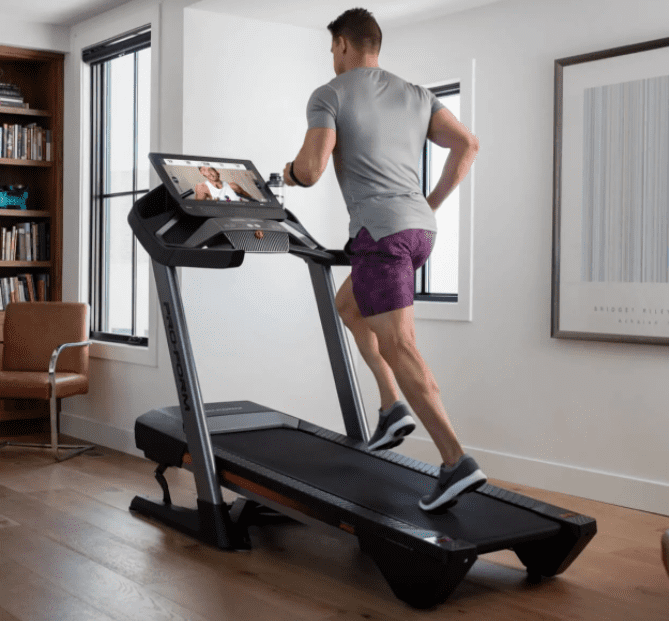Table of Contents
How to Beat the Summer Heat

Throughout history, people have managed to successfully deal with physical exertion in extreme temperatures. For instance, humans have been hunting on the African savannah for millennia without hiding from the heat.
So how does heat actually affect our bodies?
The answer to this question is about a lot more than just water. We all know that hydration is important during the hot summer months, but it is possible to actually train your body to perform better in the heat.
How Does Heat Affect You?
As a runner, the heat can have a measurable effect on your performance. Many elite runners consider temperatures below 40 degrees to be optimal for performance.
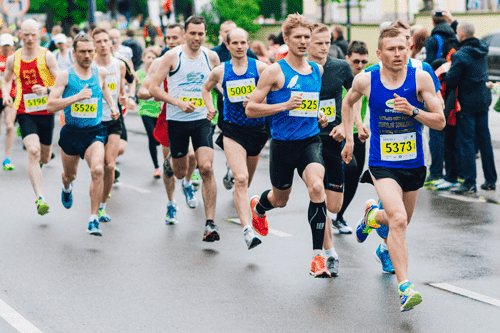
Sixty-nine degrees doesn’t seem very hot when most of us will be facing much higher summer temperatures, but it makes us all the more aware of how important it is to be prepared.
A 2007 study, led by Matthew Ely, determined the changes in performance of elite and sub-elite marathon runners at various temperatures. Ely showed that at temperatures between 70-79 degrees, elite runners clocked a loss of 3 minutes, while sub-elite runners saw a loss of 20 minutes!
Why Does Performance Suffer in the Heat?
Now that we’ve seen some evidence showing that temperature does affect performance, let’s look at why.
First and foremost, our muscles simply aren’t that efficient. When we use them for any activity, most of the energy generated ends up as heat. To keep our internal temperature within a safe range, our body has to get rid of that extra heat.
When it’s cold outside, the heat produced helps keep us warm. But when it’s warmer outside, our body must act to cool itself down. One way it does this is the common method that most of us know about…sweating.
However, our blood also plays a major role in getting rid of heat.
As your blood circulates it carries heat from your muscles to your skin where it can dissipate out into your surroundings. This is great, but we have to remember that our blood also has to carry oxygen and nutrients to our muscles to keep them working.
This is where we run into the problem.
When there is a competition between cooling blood flow and blood flow to the muscles, cooling the body always wins! This means that the muscles receive less oxygen and nutrients, and are rendered less effective, causing a loss of performance.
How Do Our Bodies Adapt to Heat?
Just as our blood and sweat are key for cooling us down in the moment, they are also the keys to helping us adapt to the heat in the long run.
When it’s warmer outside, your body actually begins to anticipate the increase in your core temperature and you start to sweat earlier and more profusely. Both of these serve as preemptive measures to slow down the inevitable rise in body temp.
Another measure your body takes is to adjust what is known as stroke volume. Your heart will actually slow down regardless of your effort level. This allows your heart to have the time to fill more completely between each beat. When this happens, your heart is then able to pump out more blood, providing more for both your muscles and your cooling needs.
Does Body Size Make a Difference?
Matthew Ely’s study also produced some interesting results, which showed that women fare better than men when running in higher temperatures. In the 70-79 degree range he saw male marathoner’s lose an average of more than 10 minutes. However, his wife only lost 5 minutes when running the 2010 Miami Marathon under the same conditions.
This may be explained by the fact that women are usually smaller than men. This means that they have a higher surface-to-mass ratio which allows them to get rid of excess heat more efficiently.
We can also see this same principle apply to men of smaller stature. For instance, the gold and silver medal winners of the men’s marathon at the Atlanta Olympics both had smaller builds. Gold medalist Josia Thugwane weighed in at just 99 lbs., and silver medalist Lee Bong-ju at 123 lbs.
What Happens When it’s Really Hot?
Once we enter into the 80-89+ degree range it becomes a matter of fluid. When you’re sweating, the act of the fluid evaporating off of the skin is what removes the heat and makes you feel cool. This means that when the sweat is dripping off of you, no evaporation is happening, so no heat is being removed.
This is something that no amount of training or preparation will change. Once you reach a certain temperature, sweating goes from a cooling mechanism to a simple loss of fluid.
Tips for Hot Weather Running
Take the time – Allow for 8-14 days of heat training to get acclimated. While adjusting, wear long sleeves and tights so that you’re warmer and your body will be forced to start adjusting. Or you can use the sauna! Even though you aren’t running, the high temperatures will produce the same cooling adaptation.
Back off your heat training 2 days before race day so that your body isn’t overstressed.
Hydrate wisely – Dehydration is a real threat. See our recent post to make sure you’re hydrating properly.
Train yourself to drink more liquids – But remember that drinking excess water will dilute the electrolytes in your system. Try drinking Pedialyte or taking electrolyte supplements to maintain proper balance.
Slow your pace when heat and humidity are climbing! Slowing your pace even slightly can give your body precious time to deal with the heat, allowing you to better maintain throughout your race.
Remember that your performance may be affected by temps as low as 60-69 degrees. Don’t wait to make adjustments.
Higher temperatures don’t need to force you indoors or keep you from doing what you love. Stay smart and be prepared. We think you’ll be surprised with what your body can do.

